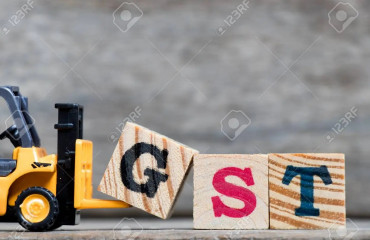
New Delhi: Plans to bring in more clarity on whether or not the Goods and Services Tax (GST) is appliable for certain types of crypto asset transaction are likely to take more time as policy makers await the outcome of an investigation into specific cases.
A 30% tax is applicable on income or capital gain from crypto transactions with effect from 1 April 2022.
New Delhi: Plans to bring in more clarity on whether or not the Goods and Services Tax (GST) is appliable for certain types of crypto asset transaction are likely to take more time as policy makers await the outcome of an investigation into specific cases.
The Central Board of Indirect Taxes and Customs (CBIC) has been planning to clarify the tax implications of certain crypto transactions that do not squarely fit into the concept of sale of goods or service.
A government official explained that the matter pertains to certain types of transactions such as mining of cryptocurrency or an exchange between two persons in crypto assets.
The tax authority has been examining whether it entails a transaction in supply of goods or services or if it was an actionable claim, which is neither goods or services but a claim to an unsecured debt or a beneficial interest in a movable property.
Clarity on that question could now take more time.
"We cannot make policy clarification during an investigation as a matter of principle," said the official, who spoke on the condition of anonymity.
Classification of goods and services is a key area of indirect tax-related disputes which calls for more clarity on the issue.
In the case of cryptocurrency exchanges, the services offered by them are taxed as services. However, transactions outside exchanges would need more clarity.
An email sent to the spokesperson for the finance ministry and to CBIC on Monday seeking comments for the story remained unanswered.
On the other hand, in the case of direct taxes, the government has already put in place a tax framework for virtual digital assets including crypto assets.
A 30% tax is applicable on income or capital gain from crypto transactions with effect from 1 April 2022.
Also, a 1% tax deducted at source (TDS) is applicable on payment of virtual assets exceeding ₹10,000 in a year. Besides, losses incurred from one kind of virtual digital assets cannot be set off against gains from any transaction involving another such asset.
Both the indirect taxation of crypto assets and the overall regulatory framework of these assets are work in progress.
Minister of state (MoS) for finance Pankaj Chaudhary informed the Lok Sabha on Monday that crypto assets are by definition borderless and require international collaboration to prevent regulatory arbitrage.
Any legislation for regulation or for a ban can be effective only with significant international collaboration on evaluation of the risks and benefits and evolution of common taxonomy and standards, the minister informed the House.
The Central government is in touch with multilateral agencies and the Bank for International Settlements to develop a consensus on regulating such assets.
